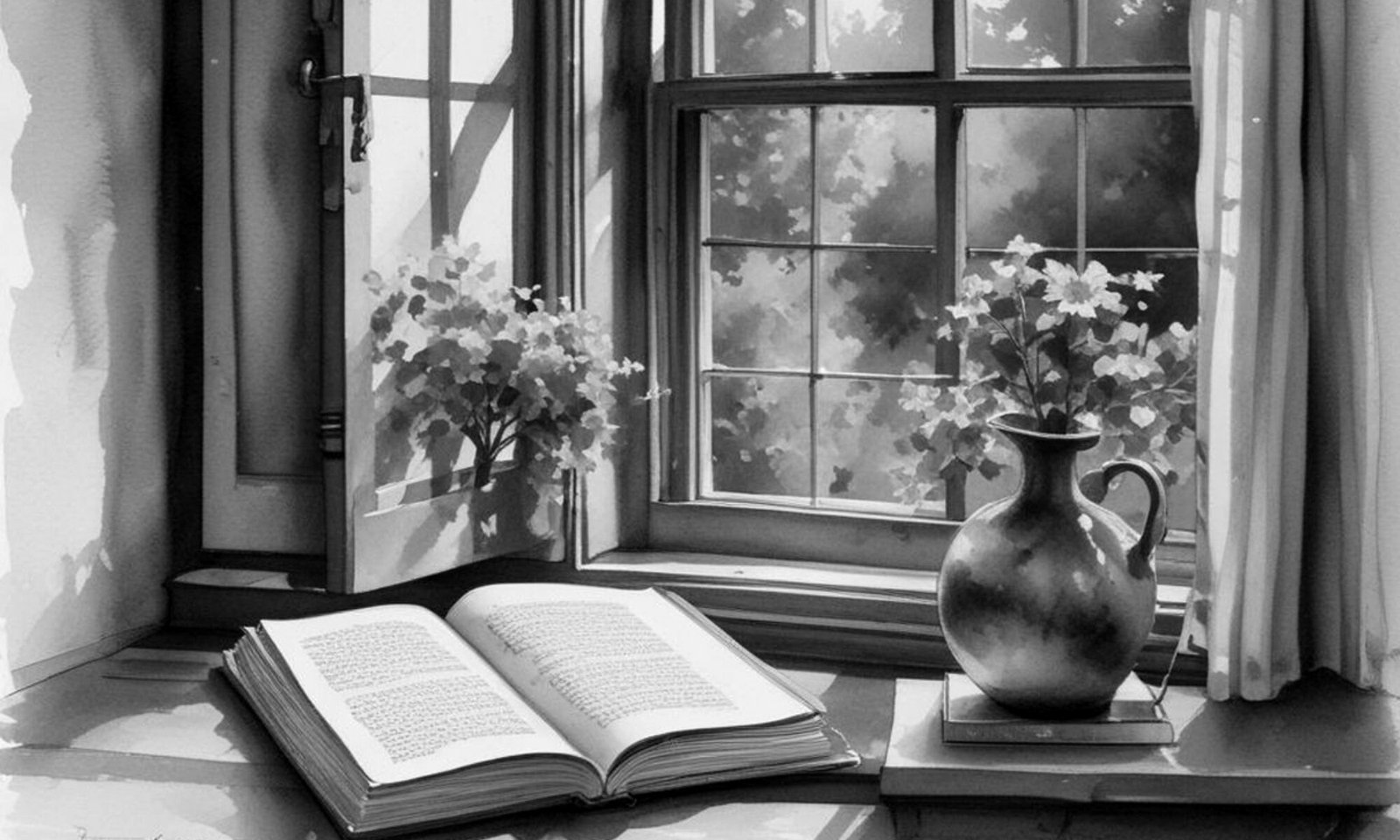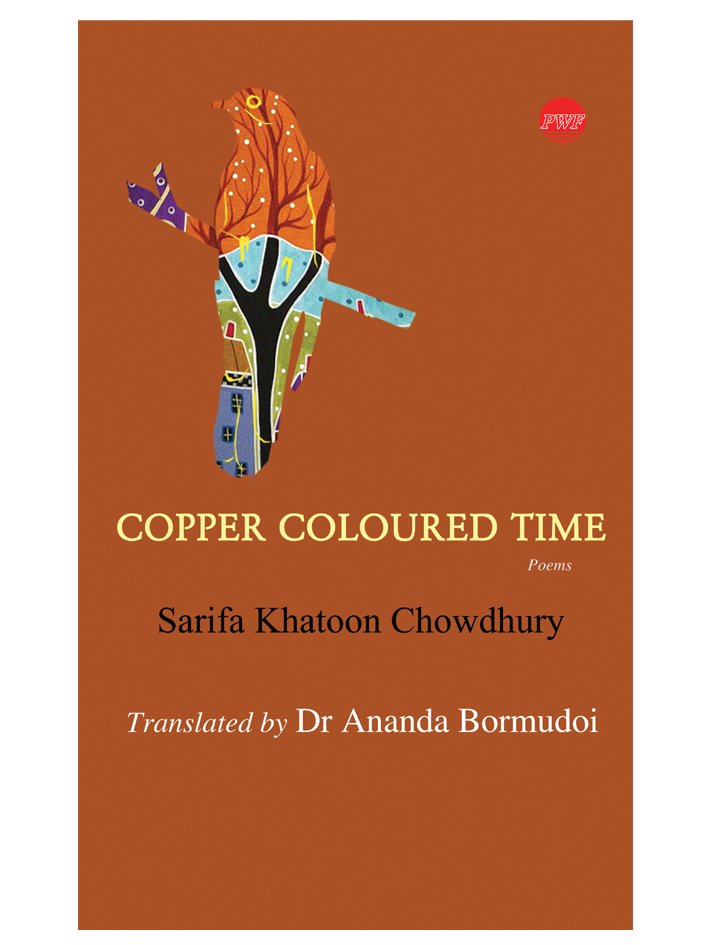
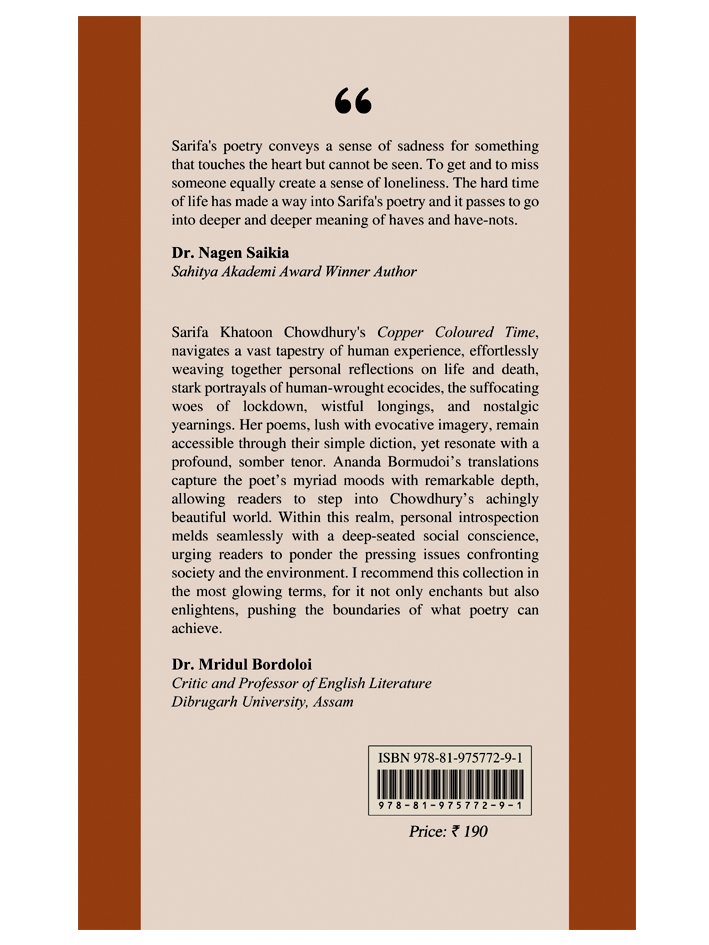
Copper Coloured Time
By Sarifa Khatoon Chowdhury, Translated by Ananda Bormudoi
A Collection of poems originally written in Assamese.
2023, PWF, HB, Price Rs 190.00, ISBN 978-81-975772-9-1
About the poet
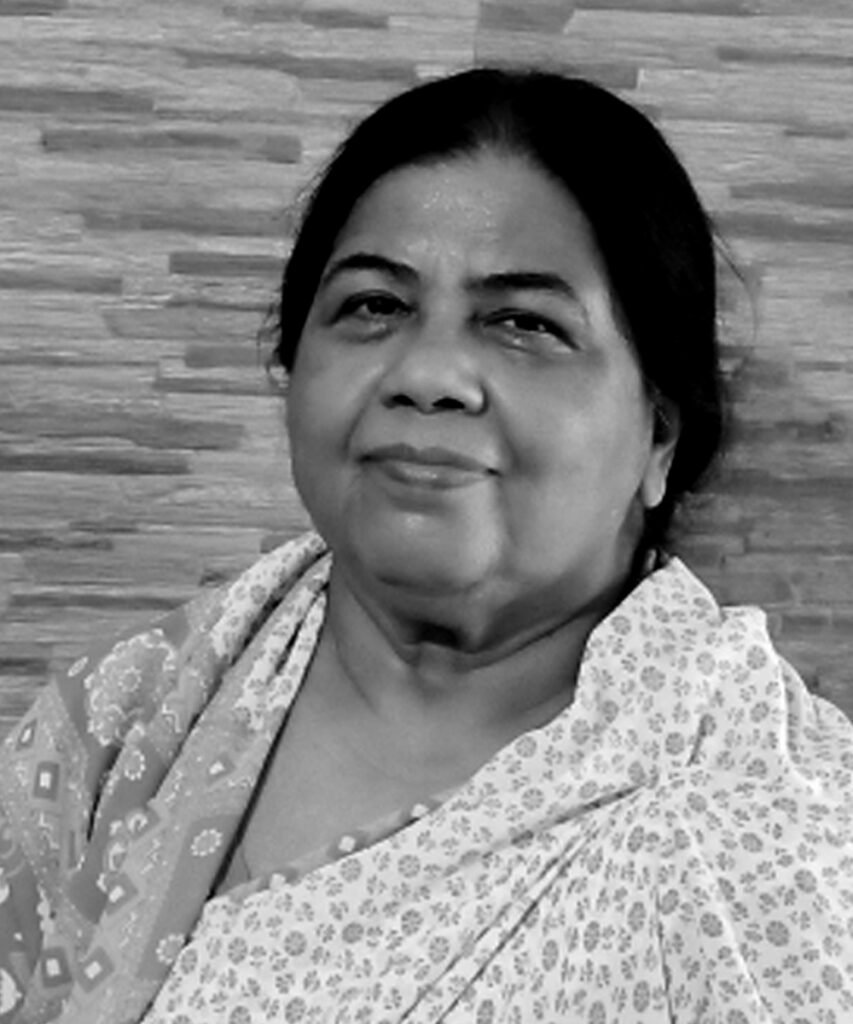
Sarifa Khatoon Chowdhury is an Indian poet and novelist writing in Assamese, the major language of Northeast India. She has already published two collections of poems. She has one novel, one collection of short stories (jointly) and three edited books to her credit. Her poems have appeared in all leading Assamese literary magazines. Her poems have been translated into Bangla, English, Hindi and Spanish. She was invited to the South Asian Literature Festival (SAARC) 2018 at New Delhi and the Brahmaputra Literary Festival 2018 at Guwahati.
About the translator
Dr. Ananda Bormudoi is a literary critic and translator based in Guwahati, Assam. He translates from Assamese language to English and vice versa. He has published more than fifteen books on literary criticism in Assamese and English. He has translated more than eight books from Assamese to English and vice versa. Some of his critically acclaimed books in Assamese are Asamiya Samalochana Sahityar Chamu Buranji (A Short History of Assamese Literary Criticism, 2008); Asamiya Kavitar Samalochana (Criticism of Assamese Poetry, 2012); Yuganayak Sankardeva (Hero of the Era Sankardeva, 2014); Adhunik Asamiya Sahityar Itihas (A History of Modern Assamese Literature, 2023).
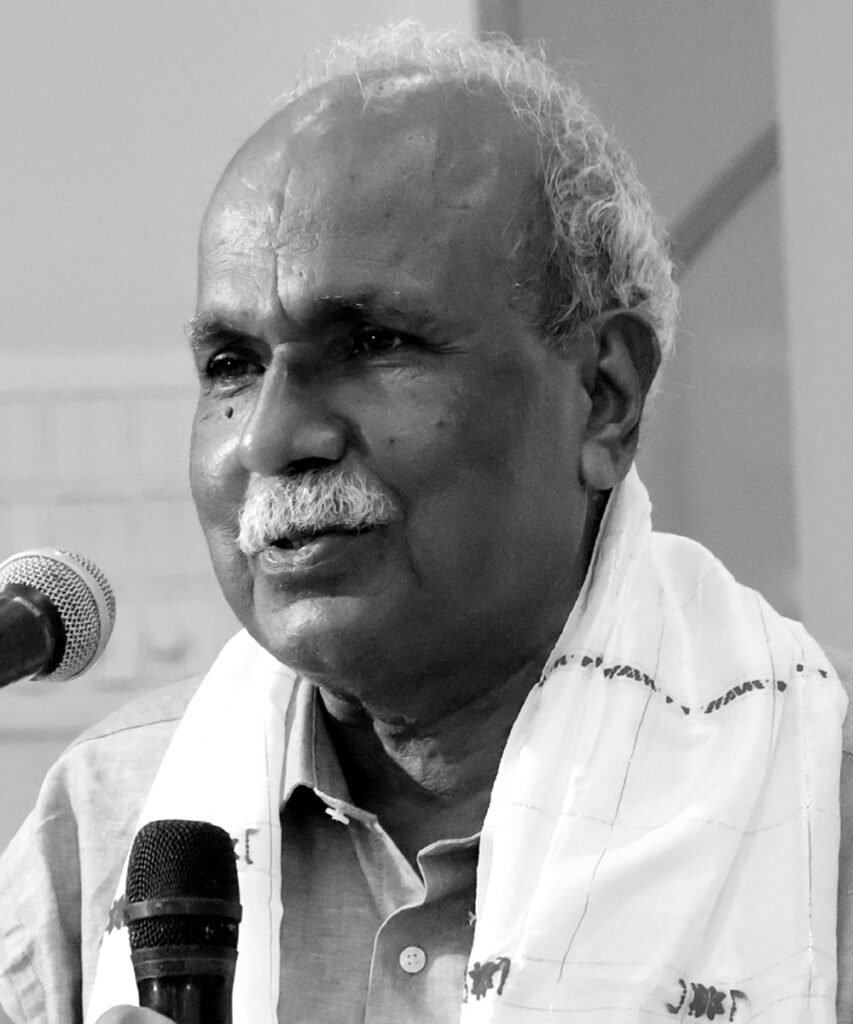
About the book
“Sarifa’s poetry conveys a sense of sadness for something that touches the heart but cannot be seen. To get and to miss someone equally create a sense of loneliness. The hard time of life has made a way into Sarifa’s poetry and it passes to go into deeper and deeper meaning of haves and have-nots.”
Nagen Saikia, Sahitya Akademi Award Winner Author
“Sarifa Khatoon Chowdhury’s Copper Coloured Time, navigates a vast tapestry of human experience, effortlessly weaving together personal reflections on life and death, stark portrayals of human-wrought ecocides, the suffocating woes of lockdown, wistful longings, and nostalgic yearnings. Her poems, lush with evocative imagery, remain accessible through their simple diction, yet resonate with a profound, somber tenor. Ananda Bormudoi’s translations capture the poet’s myriad moods with remarkable depth, allowing readers to step into Chowdhury’s achingly beautiful world. Within this realm, personal introspection melds seamlessly with a deep-seated social conscience, urging readers to ponder the pressing issues confronting society and the environment. I recommend this collection in the most glowing terms, for it not only enchants but also enlightens, pushing the boundaries of what poetry can achieve.”
Mridul Bordoloi, Critic and Professor of English Literature, Dibrugarh University, Assam
